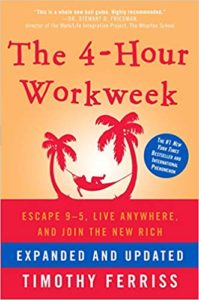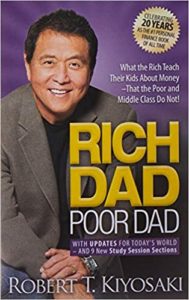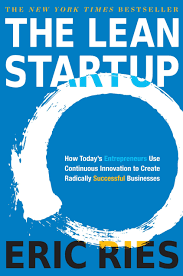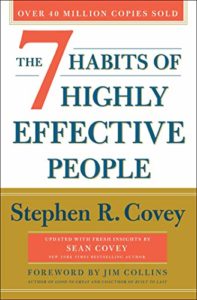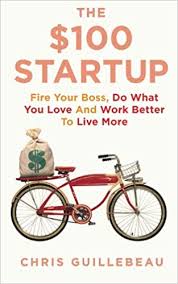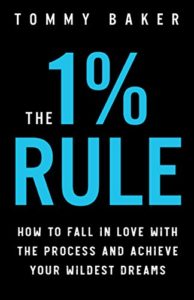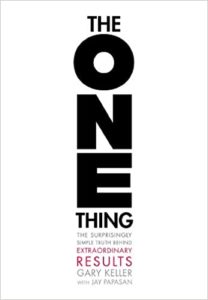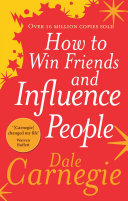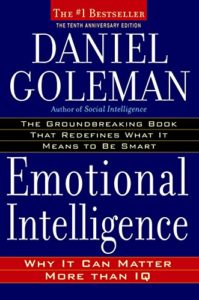The 10 BEST BUSINESS BOOKS TO READ WHILE YOU ARE SELF-ISOLATING IN 2020
Here you are in April of 2020, in all likelihood self-isolating from the menace of COVID19. The inevitable question comes, what should you be doing with all this time that you suddenly have available to you.
You have cleaned the house, then cleaned the garage, then planted the vegetable patch, never mind that its probably still not planting day yet. So, done and done!
What now?
The answer to that question is that you need a list of some very good books to read. Or, let’s change that: some great books to read! We all know the benefits of reading good books – your IQ increases, you grow taller, you start bench pressing larger and larger weights!
Whatever the myths, and there are a few, what reading quality good books does is provide learning, broadens the mind, and gives you hours upon hours of enraptured joy.
This list of top books to read is aimed at the entrepreneur, or the “self-employed” if you trust inane government classification terminology instead.
If one was to wax lyrical, then you could say that books speak to your heart and mind. Each book opens a new vista of thinking. And you would be right!
This list of must-read books is aimed squarely at the person who is an entrepreneur, and equally at the person who wants to be an entrepreneur.
In addition to the universal nature of knowledge that books impart, this list of books to read is an excellent resource for building a perspective on what it takes to succeed in the rough and tumble world of entrepreneurial excellence.
1. The 4-Hour Workweek
These are undoubtedly unpredictable economic times. How does one plan for retirement when interest rates are touching zero and the stock market in disarray.
This book tells you, no exhorts you to leave the old tired plans behind and use the 4-hour workweek book as a blueprint for what can be an alternate approach to creating income today and a retirement plan for the future.
The book teaches you how to escape the rat race, travel the world, and how to plan to generate multiple streams of income.
The 4-Hour Workweek is a handy plan for our turbulent economic times.
2. Rich Dad Poor Dad
Rich Dad Poor Dad is one of the most-read self-help books. Its goal is to teach financial literacy, something that people aren’t taught enough of in School. As a consequence of this ignorance, people work at their jobs their entire lives, never understanding how they could acquire assets and income from those assets.
Robert Kiyosaki delivers this powerful lesson in Personal Finance in the style of a folksy tale. He tells his story of learning as perspectives or lessons that he received from his highly educated father, the “Poor Dad,” and the lessons that he received from the father of his best friend, the “Rich Dad.” The lessons the two fathers teach are opposites and help us have a better understanding of why “the rich get richer, and the poor get poorer.”
This book lays out Kiyosaki’s approach to assets and income and hi philosophy of money.
Regardless of whether you are an entrepreneur or a salaryman, this book is for you.
I would strongly recommend this book as a personal finance primer.
3. The Lean Startup
We are decidedly in an age of innovation. In this age of change, companies need to be nimble; they need to innovate to keep growing continually. They need to innovate to stay ahead of the competition.
In this environment of innovation, most Startups fail.
Not all these failures are inevitable. Several of these failures are indeed preventable. The Lean Startup is a technique now being incorporated into how business is done across the globe.
It is changing how companies are built and how they launch new products.
This uncertainty is equally a challenge for the one-person startup, as well as for the seasoned Fortune 500 company. The need to innovate and the need to manage uncertainty is common for both.
Eric Ries’ idea of the Lean Startup is a company that is more capital efficient, fosters greater human creativity, relies on rapid scientific experimentation, and validated learning, to set its path to growth.
The Lean Startup also applies counterintuitive practices at the same time, which helps it shorten product development cycles, and to be supremely agile in responding to the market.
Reis believes that rather than big business plans which can stifle innovation, his Lean Startup offers a program for companies to use a scientific approach to test their vision and adapt rapidly to a changing marketplace.
The Lean Startup is an essential book for the entrepreneur.
4. The 7 Habits Of Highly Effective People
The 7 Habits of highly effective people is one of the most influential and impactful books ever written. The impact of this book has been global.
In this seminal work, Stephen Covey presents a principle centric approach to problem-solving.
This book has been the key to the success of legions of business leaders and individuals the world over.
Covey writes with insight and wisdom. He peppers his book with anecdotes that keep the reader enthralled. The 7 Habits book is a step-by-step guide for a life lived with solid integrity and great dignity.
These are principles that give us the security to be adaptable to change and which provides us the courage and power to take advantage of the opportunity that change creates.
The impact of this book can be gauged from the fact that some of the “7 Habits” have become part of the common idiom. These are, for example, The 1st habit – Be proactive or the 2nd habit – Begin with the end in mind. The 4th habit – think win-win! Etc.
The habits are famous and the book successful because the habits work.
5. The $100 Startup
Chris Guillebeau shares ideas for living life in a non-conventional way. As an entrepreneur, he has been his own boss and has, along the way, developed his philosophy of how to spend his time to find fulfillment.
In the $100 Startup, Guillebeau shows us how to launch a micro-enterprise quite literally with $100. His advice and experiments demonstrate how a micro Startup can generate enough income to support a life of meaning—one which offers fulfillment and contains adventure.
What lifts the $100 Startup is its use of case studies from around the world to help readers figure out their own passions and skills, which can help them create a profitable business from a micro Startup.
The $100 Startup is a smart, accessible, and inspirational guide to startup entrepreneurship on a really tight budget.
6. The 1% Rule
The 1% Rule is a book designed to answer three core questions:
Why do some people seem to achieve massive success with everything they do — while others can’t seem to get out of their own way?
What ability separates those who get excited and inspired only momentarily for a season, a quarter, or a few months, versus those who are consistently on fire?
How are some people able to execute critical tasks daily, while others remain forever on the sidelines, wondering what happened?
The 1% Rule is a daily system or if you prefer a playbook that helps you stay focused on what works.
Tommy Baker does an excellent job with the ‘The 1% Rule’. This book is a “self-help” book that guides the reader to get to the core of their challenges. It instills motivation and then guides the action steps that should be taken, right now, to move forward and make progress.
7. Great At Work
Why are some people better at their work than others? HR managers and Professors have struggled to find the answer to this question. This ostensibly simple question continues to confound professionals in all sectors of the workforce.
To find an answer to this question, Morten Hansen conducted a study of 5000 managers and employees. The span of the study was five-years.
The answers he finds lie in “Seven Work Smarter Practices.” These practices are for application by anyone seeking to improve their performance significantly.
In explaining each practice, Hansen uses inspiring stories from individuals that he studied in this omnibus research.
There is the high school principal with a high school in serious trouble who brings about a tremendous turnaround.
There is the story of an Indian farmer who is concerned about the yield of his crops. He is even more concerned about improving the lives of women in his village.
You will also meet in the book a Sushi chef who uses simplicity and a desire for perfection to incredible success—the ultimate accolade of three Michelin stars.
The book provides advice on how one can improve one’s performance.
There are questions and insights that allow you to understand your personal style. The books help you to figure out your work strengths and your weaknesses. It enables you to understand your own performance and individual style.
The book offers quizzes, questionnaires as aids to plan your strategy to become a better worker.
This book can help re-engineer and improve performance. With that, the satisfaction that comes from a job done with pride.
8. The One Thing
“The ONE Thing” by Gary Keller and Jay Papasan is a personal development masterpiece. This book sets out to demonstrate how by cutting through the clutter of work and life in general, we can concentrate our focus on the things that do matter.
De-cluttering is not a new strategy, but Gary Keller brings to it a discipline and focuses that makes it a policy that one can implement in one’s own life. This book is a tool that can be used by an individual as much as by a group.
How successful is this book?
“The ONE Thing” has been a #1 bestseller on Wall Street Journal, The NY Times, and USA Today. On top of that, it has been translated into 26 languages,
This book has been voted one of Top 100 Business Books of All Time on Goodreads.
Its message is simple: That by focusing your energy on just one thing at one time, you can transform your career, your physical fitness, your faith, and yes, even your personal relationships.
Distractions abound. They come at us from all directions, be it TV, the phone, or the constant ping of new emails on our computers. This book is a timely reminder that you achieve more by focusing on less. This book will guide you to find your own “ONE Thing!”
9. How To Win Friends And Influence People
How to Win Friends and Influence People is a timeless classic. Published originally in 1936 towards the end of the Great Depression, this book carries advice that is as relevant today as it was in 1937. This book has helped change direction and deliver success to countless people in their work lives as indeed in their personal lives.
The book has sold over 30 million copies worldwide, making it one of the best-selling books of all time. In Time magazine’s list of the 100 most influential books of all time, this book was number 19.
Carnegie’s advice is about the fine art of getting along with people: How can you make people like you instantly? How can you persuade people to agree with you? How can you speak frankly to people without giving offense? The ability to read others and successfully navigate any social situation is critically important to those who want to get a job, keep a job, or simply expand their social network.
The core practices of this book have been proven to be effective. These fundamental principles are about dealing with people based on a positive approach. Carnegie explains how this approach leverages to win people over to your positions without conflict. How
This book has a strong leadership component to it – It advises on how you can become the leader who inspires quality work, increased productivity, and high morale.
As Carnegie explains in the book, the bulk of our success in life depends on our ability to communicate and manage personal relationships effectively. This need to communicate effectively is valid for both home and work.
How to Win Friends and Influence People will help you discover and develop the communication and people skills that can help you with success and prosperity.
10. Emotional Intelligence
Daniel Goleman’s book “Emotional Intelligence: Why It Can Matter More Than IQ” combines information from the world of psychology and neuroscience to offer insight into our two mind states: the rational and the emotional.
How we use the two states determines our success as leaders, business persons, or directly in our personal lives.
Goleman defined Emotional Intelligence (EI) as the array of skills and characteristics that drive leadership performance. Or in a more straightforward word: Empathy.
Goleman quotes the Harvard Business School research that determined that one’s Emotional Quotient (EQ) counts for twice as much as IQ and technical skills combined in determining who will be successful.
In his book, Goleman uses examples and anecdotes to communicate the five crucial skills of emotional intelligence and demonstrates how the skills are critical components of our success in our work, our relationships, and even in our attainment of physical fitness.
What the book demonstrates is that there is another point of view, supported by solid research that explains what being smart is.
Best of all, Emotional literacy is learnable. Unlike IQ, it is not something that can get set early in life. You can learn EI and leverage this to become better as a business person, a teacher, a healthier worker, or indeed a person in any profession, anywhere.


